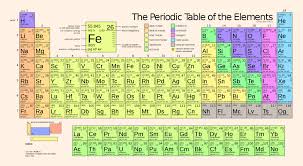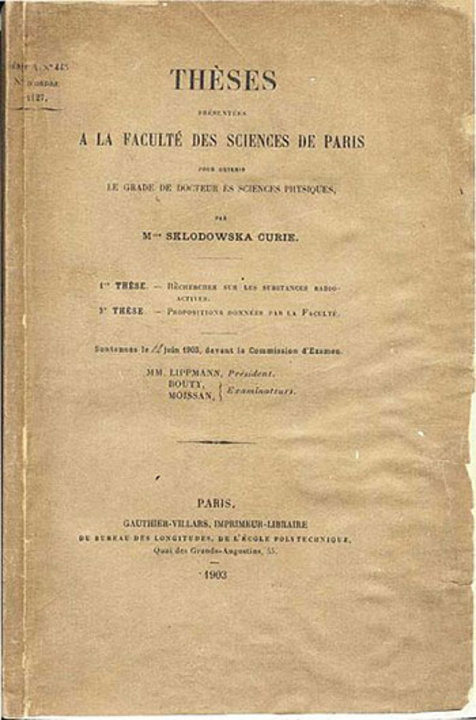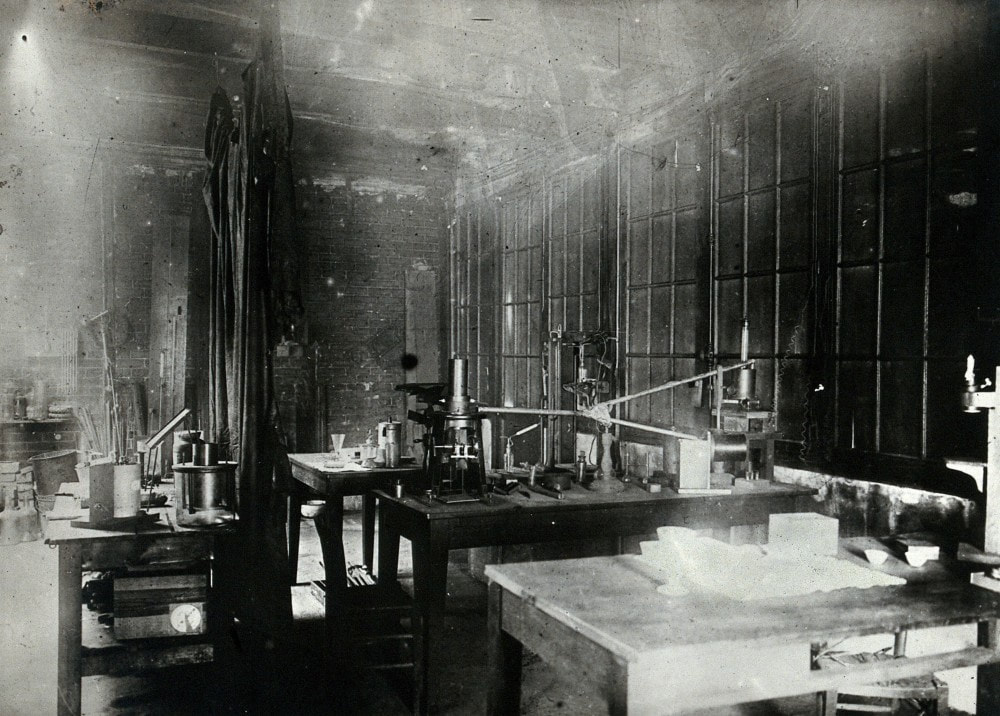For her degree, Marie worked on a thesis on radiation, which had been discovered by her teacher Henri Becquerel. While measuring radioactivity with Pierre's instruments, they discovered an element 400 times more radioactive than Uranium, and named it Polonium in honor of Marie's native country.
In 1898, Polonium was added to the Periodic Table of Elements

sci-news, Oct 4, 2017 by News Staff / Source

Marie Curie's thesis for a doctorate of science (PhD) in physics, 1903. www.nobelprize.org
Later, when studying Radium, another radioactive element, they discovered radiation is not dependent on the organization of atoms inside the molecule, but is actually something happening inside the atom itself. This discovery showed atoms were not inert but
activity happened within them!
.
